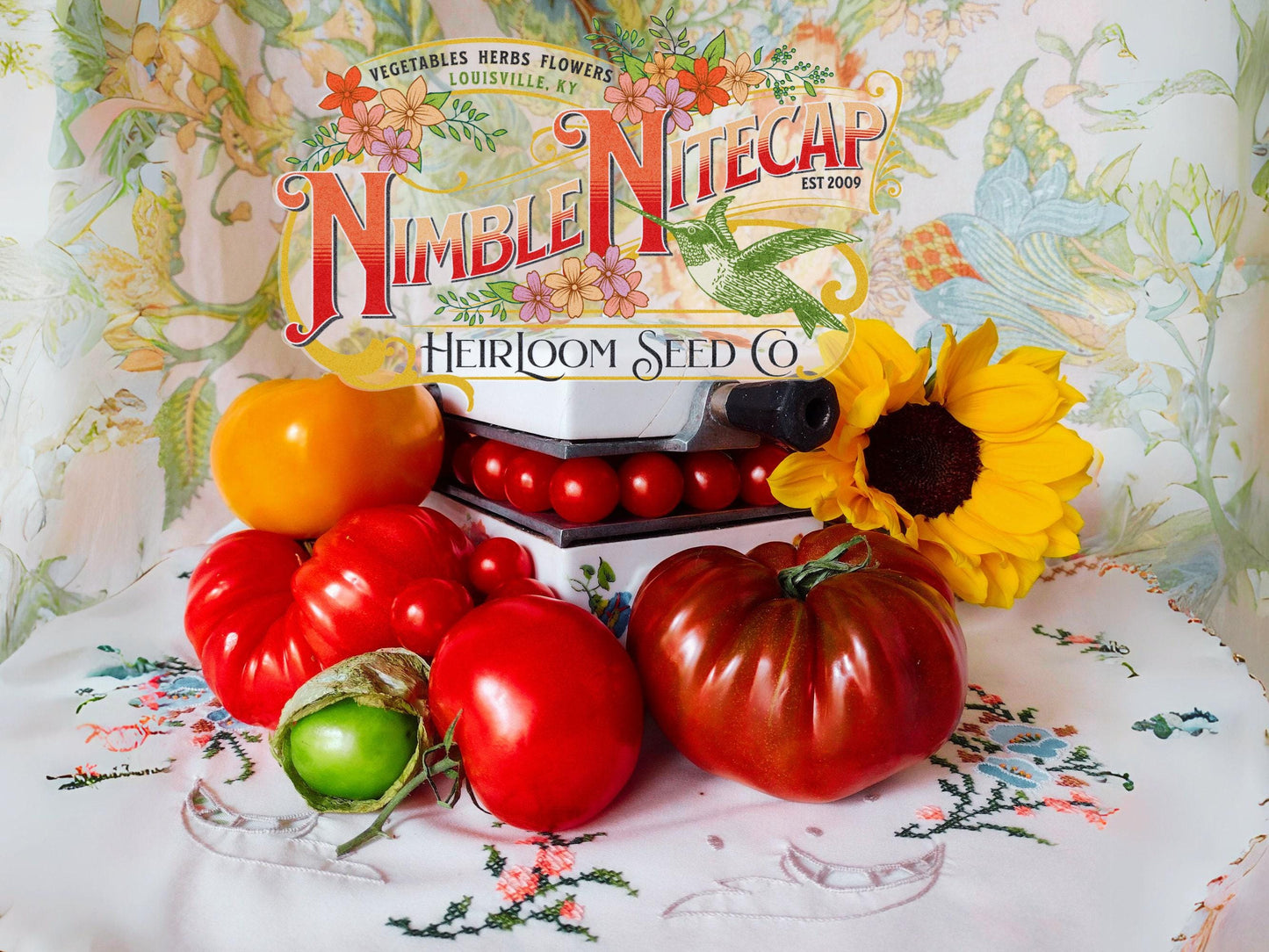Danvers Carrot is a classic heirloom variety, celebrated for its rich flavor, vibrant orange color, and adaptability to a wide range of soil types. This variety produces robust, conical roots that are typically 6-8 inches long with a crisp texture and sweet taste. Danvers Carrots are well-suited for heavy or clay soils where longer, more slender varieties may struggle, making them a reliable choice for home gardeners and market growers alike.
Originally developed in Danvers, Massachusetts, in the late 19th century, this carrot has been a favorite for its high yields and excellent storage capabilities. Danvers Carrots hold their flavor and texture well during long-term storage, making them perfect for fresh eating, cooking, and preserving. Whether you're looking to grow a dependable carrot for your garden or one that stores well through the winter, Danvers is an excellent choice.
* SCROLL DOWN FOR DETAILED GROWING INFO *
All Nimble NiteCap Seeds are:
• Heirloom
• Organic
• Non-GMO
• Open Pollinated
• Untreated
• US Grown
• Growing instructions included
• Regular testing is conducted to uphold the highest germination standards, all the while employing appropriate seed storage techniques.
Sustainable Packaging & Shipping:
• NimbleNitecap seeds are packed in eco-friendly, compostable seed packets. Seed packets are printed in-house with vegetable-based inks on biodegradable, recycled materials. (Small plastic bags are infrequently used to prevent the loss of very small seeds.)
• All orders are carefully packed and shipped with tracking via USPS First Class (or Priority, if selected) in padded ECOENCLOSE recycled and reusable mailers, or recycled boxes to protect your items in transit.
Most orders ship out the same or next business day! Please note that this time may be extended during peak season.
• FREE SHIPPING on all orders of $35 or more. Flat Rate shipping no matter how many packets you order.
* DIRECTIONS *
Common Names: Danvers Carrot
Latin Name: Daucus carota
Type: Root Vegetable
Life Cycle: Biennial, grown as an annual
USDA Zones: 3 - 10
Stratification: Not required
Germination Ease: Moderate
Sunlight: Full Sun to Partial Shade
Moisture: Prefers consistently moist, well-drained soil
Soil: Tolerant of heavier soils; loose, sandy loam preferred for optimal growth
Height: Root length 6-8 inches
Spread: 2-3 inches
Color: Deep orange
Bloom Season: Flowers the second year if left unharvested
Companion Plants: Suitable companions include onions, leeks, and tomatoes.
Potential Toxicity: Non-toxic to humans and pets
Climate Adaptability: Adaptable to a range of climates within its USDA zones; prefers cooler weather
~ Sowing ~
When to Sow Outside: 2 to 4 weeks before average last frost date, and again in late summer for a fall crop.
When to Start Inside: Not recommended; direct sowing is preferable.
Planting Depth: Sow seeds ¼ inch deep.
Watering: Keep the soil consistently moist to ensure good root formation. Do not allow the soil to dry out.
Light and Temperature: Carrots prefer cooler temperatures between 55-75°F (13-24°C).
Germination: Seeds typically germinate in 14-21 days.
~ Transplanting Seedlings Outdoors ~
Timing: Direct sowing is recommended, as carrots do not transplant well.
Location: Choose a sunny location with well-drained, loose soil to encourage straight root development.
Spacing: Thin seedlings to 2-3 inches apart to allow for proper root growth.
~ Growing ~
Watering: Water regularly to keep the soil evenly moist, especially during dry periods. Consistent moisture is key to preventing cracking.
Fertilizing: Carrots benefit from a balanced fertilizer or compost worked into the soil before planting. Avoid high-nitrogen fertilizers, as they can promote foliage growth over root development.
Pest and Disease Management: Monitor for pests such as carrot flies and aphids. Use row covers or organic pest control methods if necessary. Rotate crops yearly to prevent soil-borne diseases.
Maintenance: Thin seedlings to prevent overcrowding and ensure straight, healthy roots.
~ Harvesting ~
When to Harvest: Harvest Danvers Carrots when they reach 6-8 inches in length, typically 65-75 days after sowing.
How to Harvest: Gently loosen the soil around the roots with a garden fork and pull them out by the tops. Handle with care to avoid damaging the roots.
Drying and Storing: Carrots can be stored in a cool, dark place with high humidity for several months. Remove the tops before storing to prevent moisture loss.
~ Seed Saving ~
Allow the plants to flower and set seed in their second year. Once the seed heads have dried, collect the seeds and store them in a cool, dry place for future planting.
~ Additional Information ~
Forage for Pollinators: If allowed to flower, Danvers Carrot produces white umbels that are highly attractive to bees and other pollinators.
Origin: Danvers Carrot was developed in Danvers, Massachusetts, in the late 19th century.
Nomenclature: The name "carrot" comes from the Latin word "carota."
History: This variety has been a staple in gardens for over a century due to its adaptability and excellent storage qualities.
Potential Toxicity: Non-toxic and safe for consumption by humans and pets.
Climate Adaptability: Prefers cooler weather; can be grown in spring or fall in most climates.













